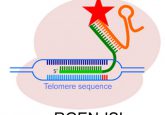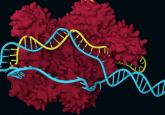A need to compensate

CRISPR/Cas9 is an effective tool for gene editing, but researchers have now developed it into a tool for studying the function of essential protein genes.

Gene editing using the CRISPR/Cas9 system has been a great boon for the analysis of gene function in cells, but it can be problematic when applied to genes for essential proteins since mutations in these genes could kill the cell. Now, in this month’s issue of BioTechniques, Marc Vigneron and his colleagues at the University of Strasbourg describe a new complementation method that facilitates mutational analysis of essential protein genes in human cells using CRISPR/Cas9.
To compensate for the CRISPR/Cas9-mediated inactivation of the chromosomal copy of an essential protein gene, Vigneron’s team transfected a plasmid expressing the same gene into the cell. They engineered the gene on the compensatory plasmid to prevent its cleavage by the CRISPR/Cas used to inactivate the chromosomal gene. With this method, the team analyzed the effects of different missense mutations in the proliferating cell nuclear antigen gene (PCNA) when they were introduced into the plasmid-encoded copy of that gene used to complement inactivated chromosomal PCNA.





